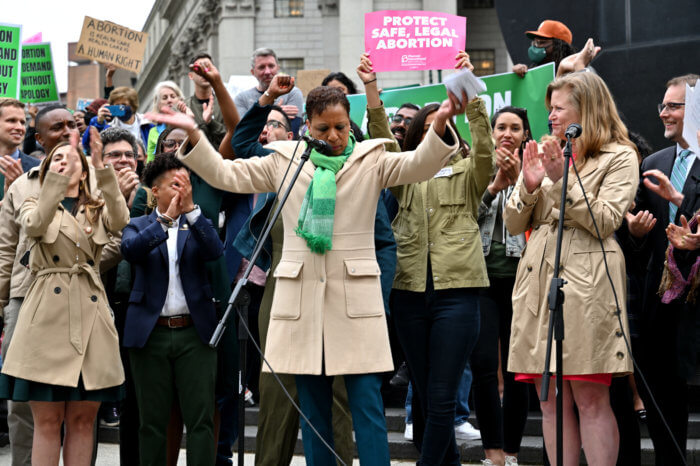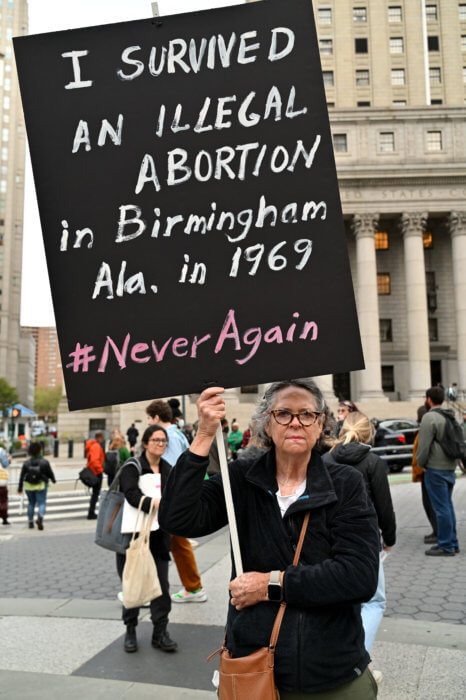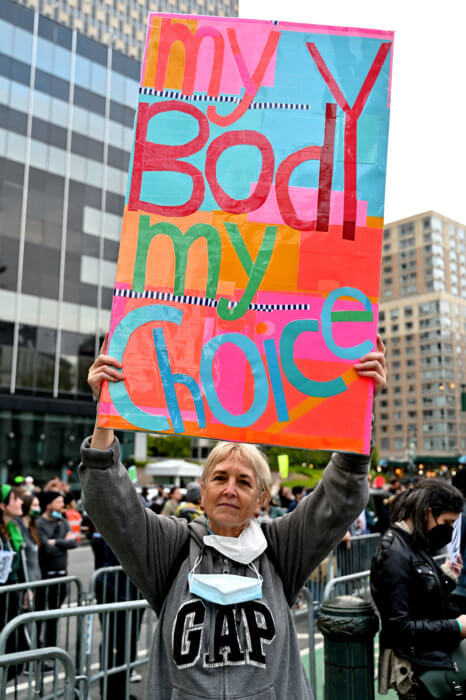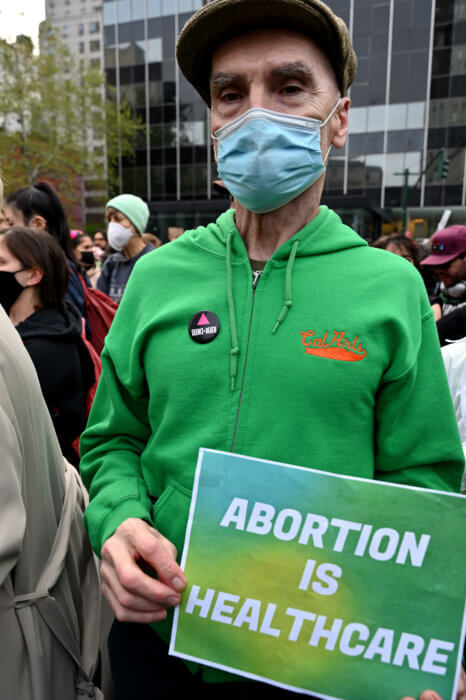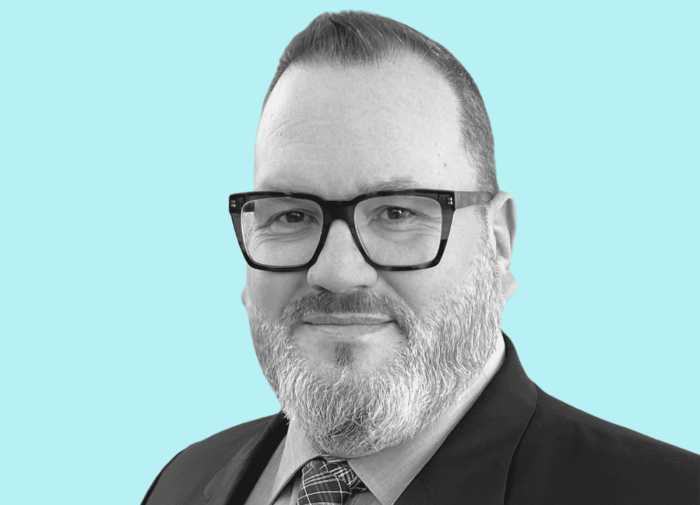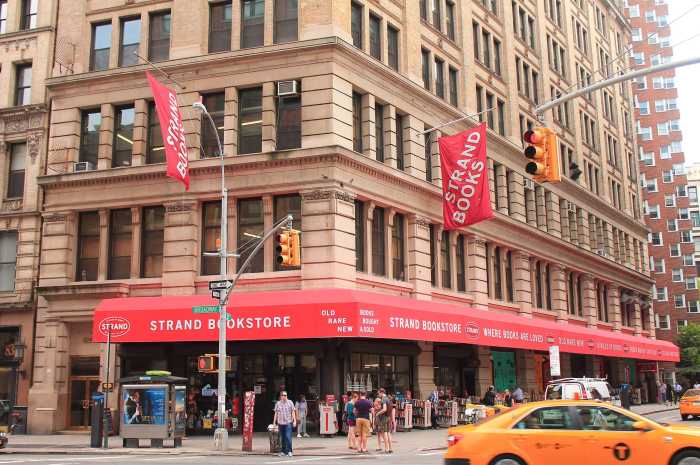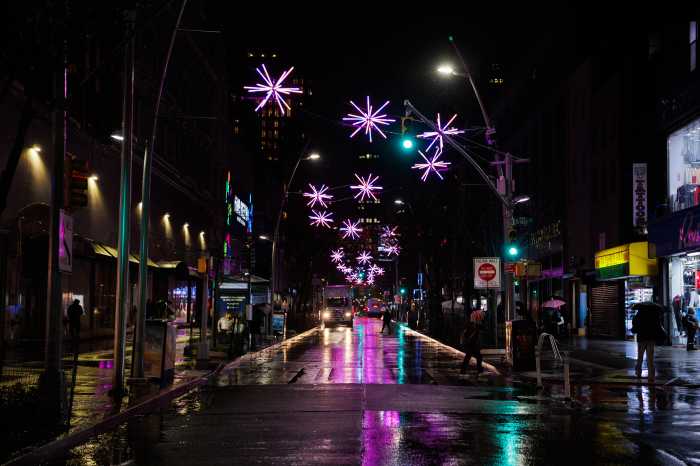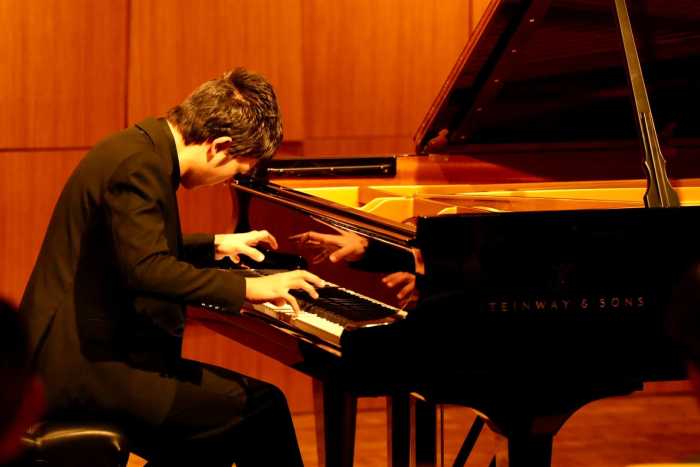Thousands of people packed into Foley Square on May 3 to stand up for reproductive freedom after a leak of a Supreme Court draft decision revealed that the court is poised to overturn Roe v. Wade and Planned Parenthood v. Casey.
Activists and speakers at the demonstration spoke of the broader fight for reproductive rights and invoked their own deeply personal experiences with abortion. State Attorney General Letitia James informed the crowd of New York State’s efforts to establish a fund for both abortions and costs associated with travel to assist out-of-state residents who hail from states that have already imposed restrictions or plan to curtail abortion rights in the aftermath of a final court ruling.
James also announced that she received an abortion following her first election to the City Council. “No apologies,” she said.
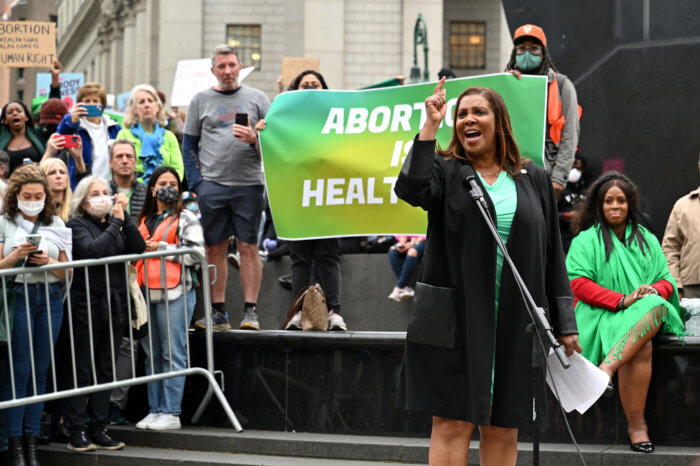
Among those in attendance at the demonstration included LGBTQ activists, allies, and leaders — and Trans Flags waved in the background. Beverly Tillery, the executive director of the New York City Anti-Violence Project, also delivered remarks, and members of ACT UP were on hand. Many lawmakers were also there, including members of the City Council’s LGBTQ Caucus.
The atmosphere at Foley Square was filled with raw emotion. Several individuals in attendance were crying — and the crowd consisted of people from different generations and backgrounds.
One of the women holding a sign was Angela Fremont, who had an abortion in Alabama more than five decades ago, prior to Roe v. Wade. Fremont’s sign, held high in the air, included the hashtag #NeverAgain.
Many signs on display at the protest emphasized bodily autonomy as well as the connection between abortion rights and healthcare. One colorful sign said, “My Body, My Choice,” while another one noted, “You can’t ban abortion. You can only ban safe abortions.”
In addition to the action at Foley Square, demonstrations popped up in other parts of the city, including in Brooklyn, where protesters made their voices heard at Barclays Center.
